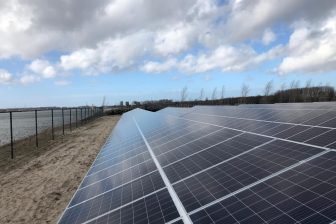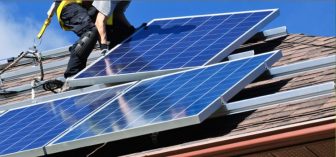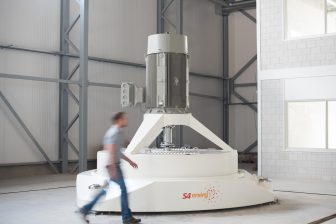Onderzoekers pleiten voor ‘Apollo-programma’ voor duurzame energie
3 juni 2015 – Een groep wetenschappers en economen roept op tot een ‘Apollo-programma’ om binnen tien jaar schone energie goedkoper te maken dan energie uit kolen. Het onderzoeksbudget voor hernieuwbare energie moet omhoog, naar ongeveer 20 miljard euro per jaar.
De opstellers van het programma verwijzen naar het eerdere ruimtevaartprogramma, dat door een concentratie van inspanningen van experts binnen tien jaar een mens op de maan kreeg. Op een dergelijke manier moet ook de transitie naar duurzame energie aangepakt worden, vinden ze. Alle deelnemende landen moeten 0,02 procent van hun BNP steken in onderzoek naar schone energie. De prioriteit ligt volgens de opstellers bij hernieuwbare energie, energie-opslag en smart grids.
Uit een bericht van De Ingenieur
‘(…) Wil het lukken om de temperatuurstijging op aarde binnen 2 °C te houden, dan moeten de kosten van energie uit hernieuwbare bronnen drastisch omlaag, schrijven de zeven wetenschappers die tal van vooraanstaande posities hebben bekleed in de Britse wetenschappelijke wereld. “We hebben een wetenschappelijk en technologisch researchinspanning nodig met de beste mensen. Alleen zo kunnen we ervoor zorgen dat binnen tien jaar de kosten van energie uit wind en zon lager zijn dan die uit steenkool.” (…)
Een samenvatting van het Apollo-programma op de site van The Global Apollo Programme
‘(…)
The Global Apollo Programme: a summary
The challenge
To avoid irreparable damage, governments of the world have agreed to limit the world’s rise in temperature to 2 ̊C. This means an absolute limit on the total accumulated CO2 that can be produced. On present trends that limit will be breached by 2035.
So we must urgently reduce our annual output of CO2.
The method
Carbon-free energy must rapidly become less costly to produce than energy based on coal, gas and oil.
This requires a major scientific and technological programme of research, using the best minds in the world and the best science.
The objective of the Programme
Within 10 years, baseload wind and/or solar power will become less costly in every country than power based on coal.
The scale of the Programme
Countries joining the Programme will devote at least 0.02% of GDP to public expenditure on the Programme over a 10-year period.
The organisation of the Programme
The Programme will be modelled on the International Technology Roadmap for Semiconductors which has reduced semiconductor prices year on year for thirty years.
There will be a Commission of countries which decide to join. This will appoint a Roadmap Committee which identifies the bottlenecks to cost reduction year on year and co-ordinates international research to unblock the bottlenecks. Areas to be tackled include electricity storage and transmission, and the generation of wind and solar power.
It is hoped that the management of the Programme will be co-located with the International Energy Agency in Paris but the Programme will include many countries that are not members of the IEA.
Progress
Over the last year the Programme has been privately discussed with Governments worldwide and has been widely welcomed. The issue will be discussed at the G7 meeting on 7-8 June, and it is hoped that by the end of the year the major countries of the world will have decided to join. (…)’
Tot zover de samenvatting van het Global Apollo Programme.
Uit een bericht van de Groene Courant
‘(…) Naar verluidt is er al serieuze interesse vanuit de grootste economieën ter wereld. Onder andere enkele EU-lidstaten, de Verenigde Staten, Japan, Korea, Mexico, India en China hebben al contact gezicht, zegt David King, één van de auteurs van het rapport (…)’
Uit een bericht van RTLZ
‘(…) Tijdens de komende G20 maken de onderzoekers bekend welke landen hebben aangegeven mee te willen werken aan het Apollo-plan. (…)’
Uit een bericht van The Guardian
‘(…) The plan has been discussed by G7 energy ministers and is on the agenda for the G7 heads of state meeting in Germany on 7 June. King said he hoped the Apollo project would launch in November, just ahead of the crunch UN climate change summit in Paris which nations have set a deadline for a global deal. (…)’
Bronnen
Website Global Apollo Programme
De Ingenieur, 3 juni 2015: Pleidooi voor Apolloprogramma duurzame energie
Groene Courant, 2 juni 2015: Onderzoekers stellen Apollo-programma voor groene energie voor
RTLZ, 2 juni 2015: Onderzoekers pleiten voor ‘maanlandingsplan’ voor schone energie
The Guardian, 2 juni 2015: Global Apollo Programme seeks to make clean energy cheaper then coal



